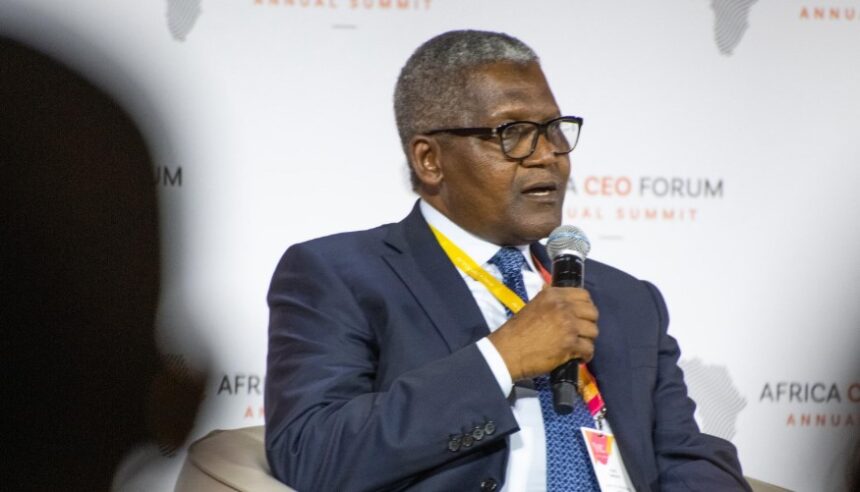Paragraph 1: The Controversy Over Nigeria’s Petrol Consumption Figures
A significant disagreement has emerged regarding Nigeria’s daily petrol consumption figures, sparking accusations of corruption and vested interests within the petroleum sector. Aliko Dangote, President of the Dangote Group, contends that the reported consumption figures are significantly inflated, serving the personal gains of certain individuals, particularly during the fuel subsidy era. Dangote estimates the actual daily consumption at 33 million litres, considerably lower than the figures presented by the Nigerian Midstream and Downstream Petroleum Regulatory Authority (NMDPRA). This discrepancy raises critical questions about transparency and accountability in the oil industry.
Paragraph 2: Conflicting Data and the Need for Independent Verification
The NMDPRA has reported varying figures for daily petrol consumption, ranging from 50 million litres to as high as 66 million litres before the subsidy removal. Following the subsidy removal, the NMDPRA reported a decrease to around 50 million litres per day. However, Dangote challenges these figures, asserting they are significantly overstated. This conflicting data highlights the urgent need for an independent investigation by a body like the National Bureau of Statistics to determine the true consumption figures and resolve the ongoing dispute.
Paragraph 3: Marketers and Refiners Weigh In
While acknowledging the existence of corruption within the petroleum sector, petroleum marketers argue that daily consumption figures fluctuate depending on various factors such as seasonality and economic activity. They suggest a figure around 40 million litres per day as a more realistic average. Crude oil refiners echo the need for independent verification to establish a definitive consumption figure. This divergence of opinions underscores the complexity of the issue and the difficulty in establishing a universally accepted figure without a thorough and impartial assessment.
Paragraph 4: Dangote’s Accusations of Corruption and Mafia-like Practices
Dangote’s entry into the refining sector stems from his conviction that local refining is crucial to ending Africa’s dependence on imported fuel. He has been openly critical of the Nigerian oil industry, describing it as a “mafia business” riddled with corruption. He alleges that consumption figures were deliberately inflated to justify the continuation of fuel imports and to benefit those profiting from the subsidy regime. This strong indictment of the industry calls for a thorough investigation into these allegations and the implementation of measures to enhance transparency and accountability.
Paragraph 5: Past Clashes and Allegations Against the NMDPRA
The relationship between Dangote and the NMDPRA has been marked by several public disagreements. Dangote has previously accused the NMDPRA of issuing licenses for the importation of low-quality fuel, a claim the NMDPRA refuted, leading to a public exchange over fuel quality testing. Furthermore, discrepancies arose regarding the capacity of local refineries to meet national fuel demand, with Dangote asserting his refinery’s ability to exceed domestic needs and export surplus production. These past conflicts highlight a pattern of distrust and diverging perspectives between Dangote and the regulatory authority.
Paragraph 6: The Need for Transparency and Reform in the Nigerian Oil Sector
The controversy surrounding Nigeria’s petrol consumption figures reveals deeper issues of transparency and accountability within the country’s oil sector. Dangote’s accusations of corruption and mafia-like practices demand thorough investigation. An independent assessment of consumption data is crucial to establish a credible baseline and inform policy decisions. Furthermore, strengthening regulatory oversight and promoting transparency in fuel importation and distribution are essential steps towards fostering a more efficient and accountable oil industry in Nigeria. This ongoing debate underlines the urgent need for comprehensive reforms to address the systemic challenges plaguing the sector and ensure that it serves the best interests of the Nigerian people.


